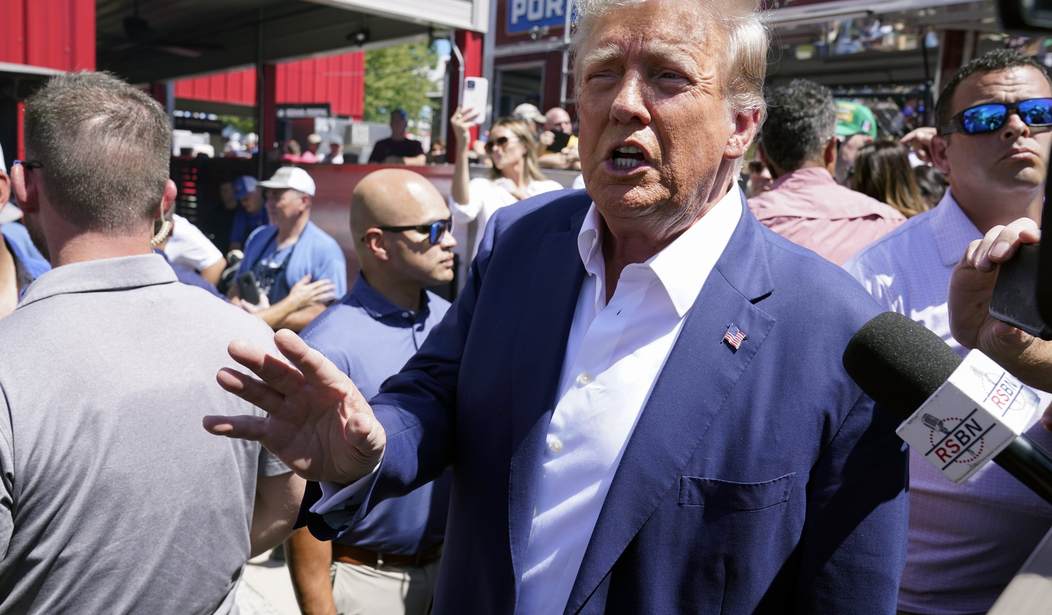Former President Donald Trump has agreed to a $200,000 bond after his attorneys met with Fulton County, Georgia's district attorney's office on Monday. The development comes just after the district attorney indicted him for a series of charges related to the 2020 presidential election.
Parts of the agreement seem fairly standard. But some of the conditions being placed on the former president might be more telling than they seem at first glance.
The bond total coming in at $200,000 will likely not surprise anyone. That seems to be fairly routine for a white collar crime case. What will likely push the matter into controversy, though, are the conditions on Trump's behavior.
The bond agreement — known as a consent bond order — sets strict rules for Trump’s release. Trump is not allowed to communicate with witnesses or co-defendants about the case, except through his lawyers, and he is barred from intimidating witnesses or co-defendants. He is also forbidden from making any “direct or indirect threat of any nature against the community or to any property in the community,” including in “posts on social media or reposts of posts” by others on social media.
“The defendant shall perform no act to intimidate any person known to him … to be a co-defendant or witness in this case or to otherwise obstruct the administration of justice,” the agreement says.
Those are stipulations that the former president would have run afoul of in the recent past if they had been in force. Specifically, he recently made a post attacking former Georgia Lt. Governor Geoff Duncan, in which he called "Jeff Duncan" a failed politician who shouldn't testify. He also attacked Mike Pence personally. Posts like that are almost certainly going to be considered intimidation going forward.
In proceedings like this, the notion that a defendant should not take actions to intimidate or influence witnesses is reasonable. Most would agree that these types of conditions are par for the course. Indeed, it is already illegal to try to scare a potential witness or member of the jury into engaging in behavior designed to help the individuals being charged with crimes.
However, in this case, there could be something more to it. In Trump's case, what would constitute a "direct or indirect threat" against the community? Regular folks would assume that common sense would easily be able to discern a threat vs. a non-threat. But when this type of language is used in an agreement, one could stretch the definition of "threat" to include several things the former president might utter or write in a furious social media post.
Indeed, at the very least, Trump has gotten pretty close to crossing this line even recently when he wrote a post on Truth Social just after the Justice Department indicted him in which he said: "IF YOU GO AFTER ME, I'M COMING AFTER YOU!"
For those of us who have more than a healthy skepticism of these indictments -- and even the legal system in general, these conditions might be designed to play on one of Trump's greatest weaknesses: his inability to keep his mouth shut.
Trump has a well-known habit of shooting himself in the foot using his Twitter thumbs as the trigger finger. What happens when he gets on Truth Social and starts ranting about the people involved in the indictment? Could he give the Fulton County authorities enough ammo to claim he is violating the agreement?
With Trump, it is entirely possible.
Yes, these indictments are motivated by political concerns. But as I've said before, the former president brings a lot of his troubles on himself. These conditions just provide yet another opportunity for him to do just that.












Join the conversation as a VIP Member